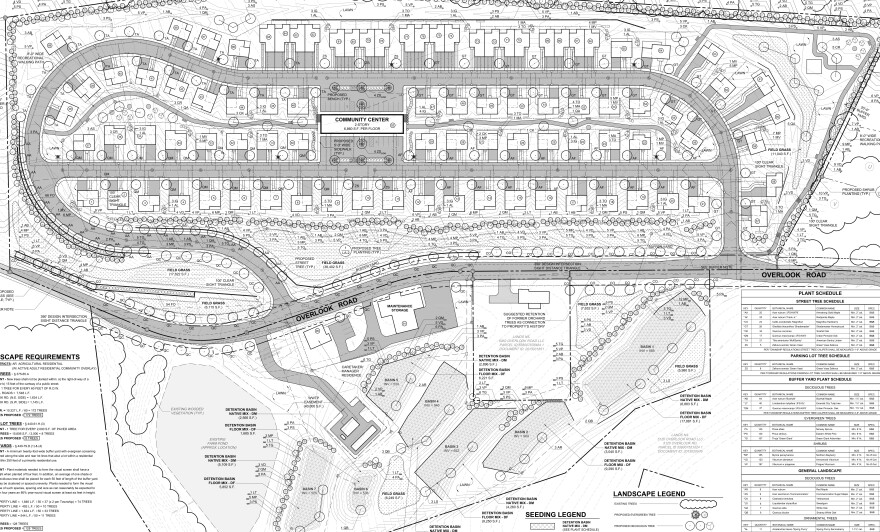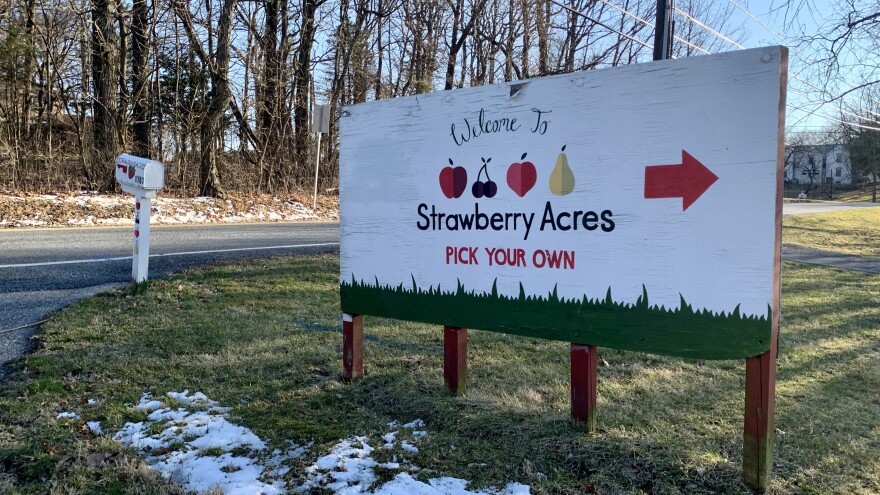NORTH WHITEHALL TWP., Pa. — A controversial housing development in North Whitehall Township is facing yet another setback.
North Whitehall Board of Supervisors on Monday voted unanimously to table, or delay the vote on, the preliminary plan for 55-plus residential community Strawberry Acres.
Supervisors have until March to either approve or deny the preliminary plan.
The proposed development has drawn resident opposition, and Monday was no exception — about 50 residents attended the meeting, and several raised concerns with its design.
“I'm not happy,” said nearby resident Katherine Wood. “I'll live with it. But I'm really not happy with the way this is all set up.”

The Strawberry Acres housing development first was proposed in 2013 by property owner New Jersey developer Piyush Patel. It has since received conditional use approval.
The development would have 89 residential units and a community center. It would be built on the former location of the Strawberry Acres orchard, which now is closed.
The township Planning Commission gave a unanimous unfavorable recommendation to the plan in September, saying it does not meet the standards set by the township land use laws because of the vertical walls.
The commission gave two other unfavorable recommendations related to the plan earlier this year.
A denied waiver
The supervisors tabled the plan came after voting to deny a waiver that, if approved, would have allowed vertical slopes in the plan’s stormwater basins.
When supervisors grant waivers, that means they are allowing a developer to do something other than what is typically required. In this case, developers are usually required to design stormwater basins without vertical slopes.
Waivers can only be granted if the developer proves there is an “undue hardship,” or a specific reason why it is too difficult to meet the typical requirement.
Peter Lehr, the lawyer representing the developer, argued that the vertical slopes were needed because of the topography of the property.
But the township Planning Commission had previously disagreed and requested the developer modify the plan to meet township requirements.

Resident Joe Sterling asked why the developer would come before the Board of Supervisors without implementing the Planning Commission’s feedback.
“The planning commission is up here for a reason," Sterling said. "Does their say-so not matter?”
Board Chairman Al Geosits clarified that the Planning Commission is a recommending body and the Board of Supervisors could act independently from it.
"We have a group of people who are living in the adjoining subdivision who don't want this project to happen, regardless of how compliant we are with your regulations."Peter Lehr, lawyer for the developer
Lehr later said the developer did adjust the plan to address some of the township concerns.
When he said that, some members of the audience laughed.
“This is what we've had to deal with,” Lehr said, referring to the laughter. “This is part of the reason why we have to keep coming back.
"We have a group of people who are living in the adjoining subdivision who don't want this project to happen, regardless of how compliant we are with your regulations.”
Sterling and other residents raised several other issues with the plan besides the stormwater basins, such as potential contaminants in the soil and pollution to nearby waterways.
Township Manager Randy Cope said in an interview after the meeting that the issues should be addressed in the final land development plan.


